Description
A stellar top lot to kick off the Ethiopian season!
Similar to a natural Yirgacheffe with far less spice tones. Oromia produces more neutral chocolate like dark tones compared to the tea like note of Yirgacheffe.
West Arsi is a high-elevation area near the center of Ethiopia experiencing subtropical climates. The washing stations throughout West Arsi service hundreds of smallholder producers. The mixture of dark and red soil creates coffees that are very clean and elegant in profile.
The Mundayo Washing Station is located in the Oromia Region in the zone of West Arsi and serves about 750 smallholder producers in the area. The farmers deliver their cherry to the washing station, where it is floated to remove damaged and underripe cherries before being dried on raised beds for 21 days.
Tasting Notes: A beautiful light roast coffee; super clean, delicate, and well balanced. Sweet and floral tones are the first taste mixing with a wonderful fruitiness, just a hint of a chocolaty factor. A shot for the slightly darker toned blueberry notes, but red fruit is easy to taste. Wonderful aromatics.
Medium roasts are equally as tasty: smooth and chocolaty, a bit neutral with some slight fruitiness in the aftertastes. Darker roasts are a little thicker, very sweet but being a delicate cup, the dominate tones are mostly the smoky/roasty tones of the roast point.
Roasting Notes: Got to keep this one pretty light roasted to see it shine. Our preferred roast level was as first crack was subsiding, as you enter the medium roast levels, the floral/fruit move to the background promoting the chocolate like tones. High chaff, roasts slightly two toned, but clean as a whistle from light to dark in the cup tastes.
Coffees in Ethiopia are typically grown on very small plots of land by farmers who also grow other crops. The majority of smallholders will deliver their coffee in cherry to a nearby washing station or central processing unit, where their coffee will be sorted, weighed, and paid for or given a receipt. Coffee is then processed, usually washed or natural, by the washing station and dried on raised beds.
The washing stations serve as many as several hundred to sometimes a thousand or more producers, who deliver cherry throughout the harvest season: The blending of these cherries into day lots makes it virtually impossible under normal circumstances to know precisely whose coffee winds up in which bags on what day, making traceability to the producer difficult. We do, however, make every available effort to source coffee from the same washing stations every year, through our export partners and their connections with mills and washing stations.
Typically farmers in this region don’t have access to and therefore do not utilize fertilizers or pesticides in the production of coffee.
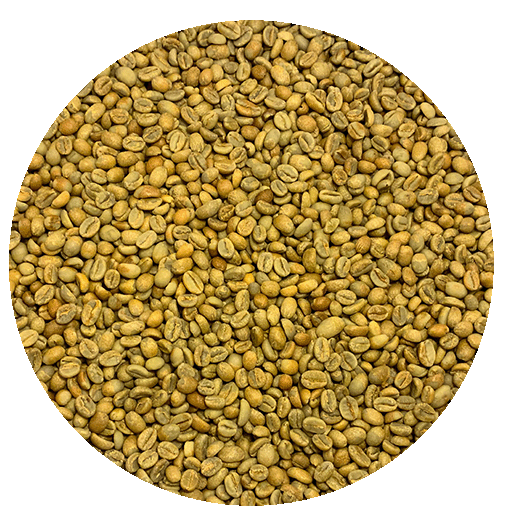
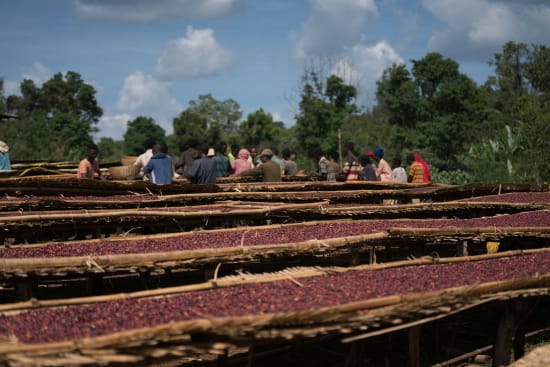
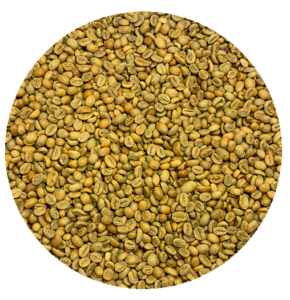
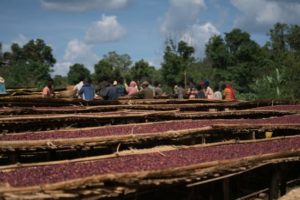
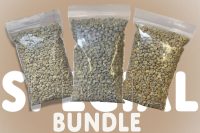
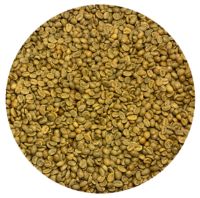
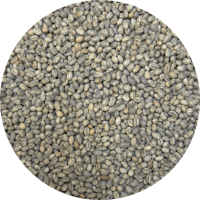
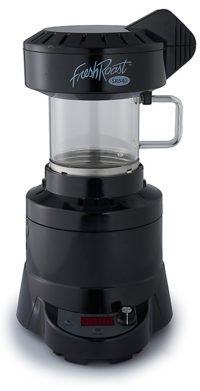

Trav (verified owner) –
The green beans had a funky smell but when roasted light/medium, this was delicate and smooth. I would not say tasteless, but nothing overwhelmed. There were background hints of nuts and berry. A very fine coffee if not requiring interesting notes.